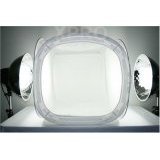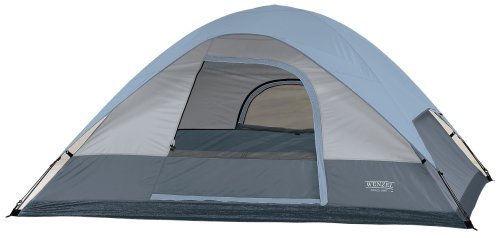
XPRO proudly introduce GoPro, the second generation
of photo light tents.The tent is made out of outer nylon shell to diffuse the light, and the blended pure white felt P.U. interior for maximum light distribution. Most of the light tents on the market are manufactured only with Nylon material which may cause uneven distribution of diffused light in the tent.There are two rows of elastic tabs allowing user to utilize clear rods or clear fishing line to suspend your object. GoPro 24" x 24" Tent is perfect for photographing small products that can be lit with daylight, HMI, electronic flash, fluorescent quartz and tungsten light sources. Perfect for jewelry! The tent includes four background and a portable carrying case.Dare to compare challenge. We offer a 30 day money back guaranty (Full Refund) if you are not convinced that the GoPro light tent is one of the best light tent manufactured period.For more Questions or Assistance please contact us at (949)581-6400 from Mon-Fri 9:30am - 5:30pm PST. Our Tech Support team will be happy to further assist you. Thank you very much.
Customer Review: XPRO Light Tent
Good product, backed by great customer service! The guys at XPRO are the best! They followed up my "problem" with prompt customer service and great advice. I would surely purchase from them again....A+++++++++
Customer Review: What I was looking for
This is my first light tent, It looks well made and is easy to open and to store...ok.. I had to see the website from photoflex in order to figured out how to close it....the liteIgloo and this one are very similar, so is the same process. Big enough for now. My only complain... they need to remove or update the picture here in Amazon, the other customer was right, it came just the Light tent, no backdrops at all.
Safety and Situational Awareness
Safety and situational awareness are one two of the most important elements of any outdoor activity. I'm sure we've all heard the horror stories of what can happen if they aren't given enough consideration. Yet despite those warnings uneducated people still keep falling into the same situations. Even now, after the popular "Survival Guy's" and "Safety Expert" documentaries have appeared on countless travel and educational channels, we still go out unprepared. Now I don't at all claim to be any kind of expert in how to keep yourself safe... I've had my share of injuries... However I can share with you some clear common sense items:
- Map out your camp site before you arrive, identify roads, landmarks and Ranger Stations and be aware of fire danger levels if you are in heavily forested areas. In winter time, if you are snowshoeing, be aware of avalanche areas.
- Cooking and campfire: Keep your cooking and campfire away from your tent.
- Children: Be certain to teach children to respect fire, sharp instruments, wildlife and to stay nearby.
- Let friends and family know where you will be camping and when you expect to return.
- Never sleep with portable heaters running over night in your tent. Carbon monoxide poisoning can be lethal, or at the very least, seriously uncomfortable. Plus, plastic melts!
- Wildlife: Respect their habitat - you are in their home -- and always keep your food out of reach, especially in bear country.
- Water: Never drink directly from rivers or mountain streams, trust me this can have baaaad consequences. Use a well-rated water purifier/pump.
- Sleeping Bags: This is where I hear the "That's a plug", well give me a little credit, at least there's good info here ;-) Make sure your sleeping bag is rated for a sufficient temperature. i.e. don't go out winter camping with a %2B50 degree rated sleeping bag.
- Poison Ivy Relief: If exposed wash the exposed area immediately with soap and cool water. Bring ointments that can help relieve any discomfort. Some people think vodka helps, but Mythbusters shot that down like five episodes ago.
- Snake Bite Kits: If you are camping in an area, or during a time of year, in which you could encounter poisonous snakes, be certain to have a snake bite kit, and then don't leave it in your tent when you go out for a hike...doh!
- Bee and Wasp Sting Kits: Not everyone is allergic to bee or wasp stings but some people are highly allergic. Be aware if anyone in your group is. Also, don't quote me on this, but I heard somewhere that jumping into a lake helps you escape, however, you could very well be facing a whole new set of issues if you do that so....
- Bear Repellant: If you will be in bear country, bring bear repellant. Know what to do ahead of time upon encounter with a bear. I know for a fact, without a shadow of a doubt, kicking the bear if the repellant doesn't work.
- Ticks: Be aware if you are in an area where Lyme disease is possible and know the proper way to remove ticks - with tweezers as near to your body as possible and never squeeze the tick as you remove it. See American Lyme Disease Foundation.
Bugs and Insects in general:
- Avoid wet and grassy areas.
- Avoid scented products, such as perfume or cologne.
- Wear colored and long sleeved pants and shirts when possible. The light colored cloth allows you to see any little critters.
- In areas with heavy populations of mosquitoes or flies, a head net can be a welcome relief while hiking. It also can be a great fashion idea when you stumble across a random mountain town.
Entertainment
Now if you aren't running for the nearest Hyatt, let's move on to the fun stuff. In the outdoors, there should never be a time where there isn't something to do, whether it be hiking, swimming, climbing a tree, or well...climbing a tree higher! However, if you do find yourself without anything to do, and relaxing and reading a book isn't appealing, here are a couple other ideas.
- Story-telling: Since the dawn of human kind, campfires and night and story-telling have gone hand-in-hand. With children, let them talk about what they want - the stories will follow. What did they see in nature during the day that most excited or pleased them? If there aren't any children, you can still always make something up and pretend it really happened...lol, but be warned, I think that leaves open the possibility of you being dubbed a liar!
- Musical Instruments and songs: Like good story-telling, songs and campfires have always gone hand-in-hand. If you or your children play instruments, bring them if you can. Bring along some songs, as well. Even if you don't know how to play, again, you can always pick one up and make something up; at the very least you'll get some laughs.
- Cards: For many, cards are a must to any campsite.
- Look up!: For many, the stars overhead are pure wonderment. You might want to bring a star map. I like to give random stars a name, then try to find them the next night. So far, I'm 0-100.
Cooking
For those who love to cook, cooking over a campfire is a great challenge, harking back to where the art of cooking began. The web offers many free recipes for campfire cooking. One thing to keep in mind: Don't go grabbing random plants and throwing them in your stew... now you'd think that would be just flat out logic, but apparently, based on some statistic I recently read... it's not.
- Calculate the number of meals you will prepare, measure out the ingredients you'll need and pack them, neatly labeled, in Ziplock bags. These are the times where, as a writer, you wish Ziplock paid for product placement.
- For quick "on the go meals," prepare chili, stews and soups before your trip, freeze them, keep them in a cooler to reheat.
- Bring heavy duty aluminum foil and your favorite plastic wrap. This could also be categorized under the entertainment section ; )
- Bring liquid biodegradable dishwashing soap.
- Freeze foods, such as meats and cans of juice, before putting them in your cooler. They will keep longer and serve to cool other foods. Crafty! In the woods, you need to be crafty; otherwise you're just...well, normal!
- Cover pots and pans when cooking. Food cooks faster and you use less fuel. Pack everything in a cooler in watertight plastic bags. Wait! I might be repeating myself, well, it's good advice anyhow.
- Store food high and out of reach to discourage animals, including bears. Consider hanging it high from a tree branch, this is where the climbing a tree practice we talked about earlier comes in handy... 2 for 1 entertainment and no bears! (You'll need to remember to bring rope.)
- While you're eating, place a pan of water over your fire, to help clean up when you've finished eating, or for a warm liquid to wash the taste out of your mouth
- Fuel source: Will you be using charcoal or propane to cook? Be sure you bring plenty of what you will need. Surprisingly enough the whole "rubbing two sticks together" is harder than it looks.
- Clean up quickly after eating so food doesn't harden. Yes, unfortunately hardening food is a big problem these days. Once I forgot to clean up after making some chicken soup and man oh man, I broke a tooth later that day.
- If you'll be cooking over a wood fire, wipe dish soap on the outside of your pots and pans to make soot removal a breeze.
- Search the web for great campsite cooking recipes and come prepared to dazzle your family! Or if you're eating alone that night, you can conveniently forget you got the recipe online and say to yourself "I've always been an incredible cook".... definitely comforting.
Campsite and Campsite Etiquette
Picking your campsite is kind of like shopping for a house, minus the realtors, escrow and whatnot:
- Find a shaded spot that is large enough for your needs.
- Pitch your tent away from low ground, where rain water can gather.
- Be certain your campsite will have good drainage, in case it rains.
- Be certain restroom and bathing facilities are within easy walking distance.
- Be certain drinking water is nearby.
- Pack it in- Pack it Out: Leave your campsite as clean (or cleaner) than you found it. We all hate it when we get to a campsite and there's a freeze dried haggis wrapper sitting there.
- Keep an orderly campsite: Keep your campsite orderly and safe. Don't leave dangerous or sharp tools exposed. Keep food stored safely out of reach of animals, so you do not draw them in. If you looked hard enough, I bet you could find a maid service online that could help with the orderliness, with the technologies these days who knows!
- Make sure your campfire is cold: When you leave be absolutely certain that your campfire is cold. No jokes, this is important!
- Treat neighboring campers as you would want to be treated. Don't be loud and bothersome in close camping quarters.
- Don't pee near camp, it can attract wild animals and is just flat out a bad idea. *A rule for the guys.
-- D. Sturgeon
 NULL
NULL
